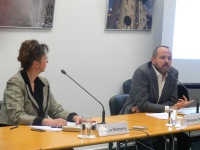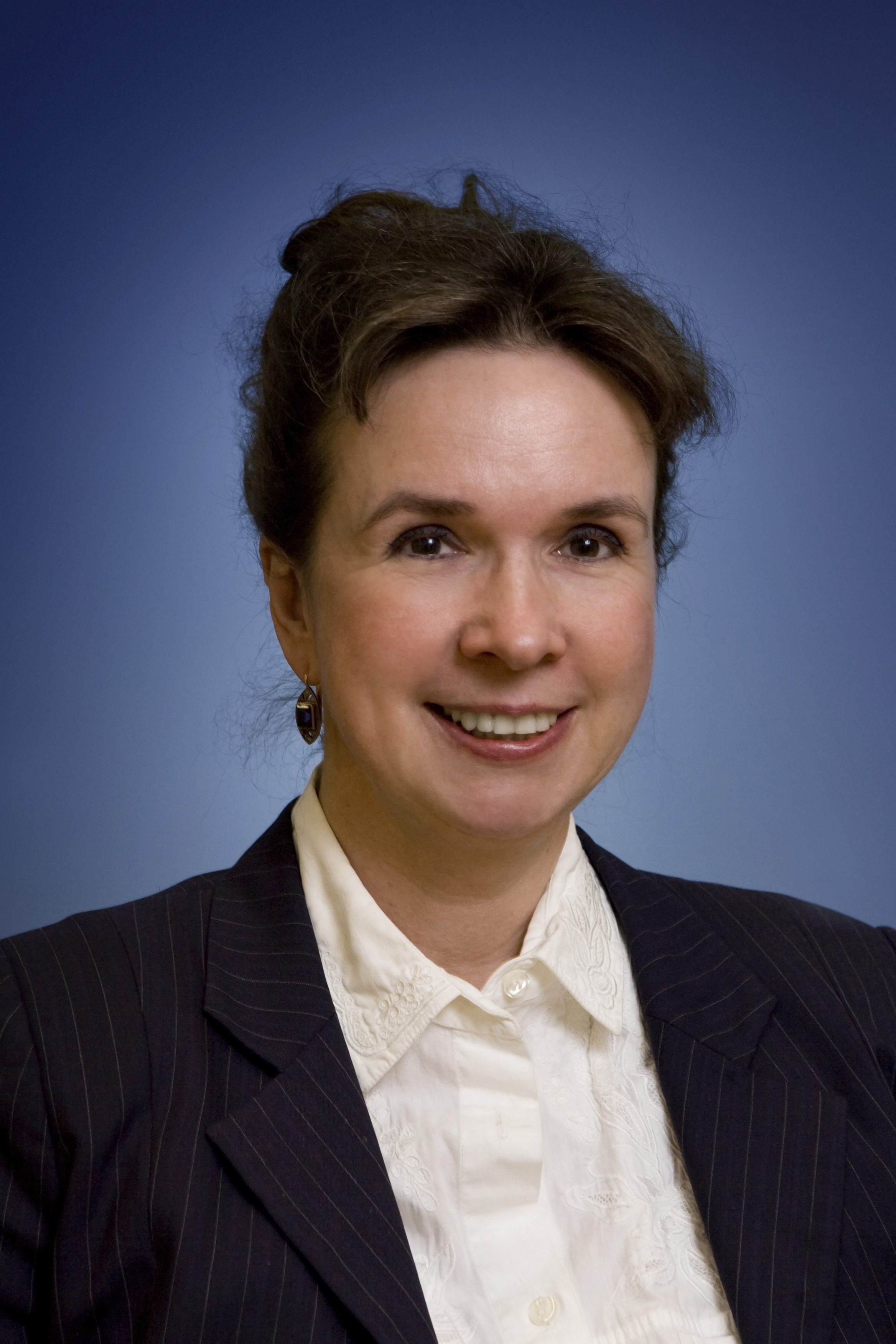{
"authors": [
"Benjamin H. Bratton",
"Natalia Bubnova"
],
"type": "event",
"centerAffiliationAll": "",
"centers": [
"Carnegie Endowment for International Peace",
"Carnegie Russia Eurasia Center"
],
"collections": [],
"englishNewsletterAll": "",
"nonEnglishNewsletterAll": "",
"primaryCenter": "Carnegie Endowment for International Peace",
"programAffiliation": "",
"programs": [],
"projects": [],
"regions": [],
"topics": []
}
The Digital Civil Society in a Multipolar World
Mon, October 18th, 2010
Moscow
IMGXYZ2743IMGZYXWhile some view the Internet as a tool, others believe that it shapes the world. Benjamin H. Bratton, associate professor of visual arts at the University of California, San Diego, and director of the Center for Design & Geopolitics at the California Institute of Telecommunications and Information Technology, spoke at the Carnegie Moscow Center about the future of the Internet and how it is influencing global perceptions of personal and national identity. Carnegie’s Natalia Bubnova moderated.
Citizens and Technology
The concept of citizenship is changing around the world as modes of governance fail to keep up with a changing society, Bratton said.
- Nationality: In a world of frequent migration—migrant workers, migrant cultures, and migrant information—nationality is giving way to a global network of citizens. This breakdown of nationality also brings into focus questions about jurisdiction and who controls whom. Must a person living in a country or city abide by laws simply due to location, or will he or she have to answer eventually to a universal virtual power?
- Sovereignty: Philosopher Immanuel Kant defined sovereignty as a fraternal co-inhabitance dependent on space. However, the Internet defies spatial boundaries. The modern nation state, born with the Treaty of Westphalia in 1648, is slowly becoming obsolete, Bratton asserted. Borders are porous and loyalties are aligning both with post-modern companies and pre-modern religions instead of with nation states. He suggested that the battle over censorship between Google and China exemplifies the predominance of the sovereignty of network information. Nations can no longer control the Internet, and access to the Internet is becoming a human right and an essential part of civil society.
The Information City
With more than half of the world’s population living in cities, urban life is becoming the focal point of society and a new cosmopolitanism based on technology and the Internet is emerging, Bratton said. He broke down the world into three different information “cities.”
- Cloud Computing (Global Level): The global city is connected through a series of data centers. This network is based on the ability of citizens to access supercomputers anywhere in the world through the Internet. These supercomputers and data centers pose problems for national sovereignty not only due to their mobility, but also due to their locations. Google plans to place data bases and thereby relocate the entire infrastructure of cloud computing onto drilling rigs offshore. These plans move information control away from singular nations and may give way to an entire new political and economic infrastructure.
- Ubiquitous Computing (Local Level): The urban city provides fluid access to the Internet. Wireless networks are becoming part of the architecture of cities, and computers are no longer stationary. With Internet access through phones and other portable devices, people are changing their perception of computing as it integrates further into daily society.
- Augmented Reality (Individual Level): Our individual perception of the world is becoming more electro-centric, Bratton said. When an individual views the world through an iPhone, for example, his perception is being split into a physical and an electric level of analysis. iPhone applications provide a perception of the world different from how a person would normally see it—and along with this, there is also a simultaneous instrumentality perception. Bratton hypothesizes that soon an individual will not recognize these instruments, and different interfaces will become integrated into his perception of the world. Not only his perception of the world, but also his experience of space is starting to also change.
Whatever geopolitical system comes next will have to integrate information systems and technology into its basic structure. Perceptions of global, local, and individual levels are becoming more interconnected as the Internet evolves, Bratton said, and things are changing at a more rapid pace than ever before.
Carnegie does not take institutional positions on public policy issues; the views represented herein are those of the author(s) and do not necessarily reflect the views of Carnegie, its staff, or its trustees.
Event Speakers
Benjamin H. Bratton
Natalia Bubnova
Former Head of Content Production, Moscow Center

Natalia Bubnova was head of content production at the Carnegie Moscow Center. She previously served as deputy director for communications at the Carnegie Moscow Center.